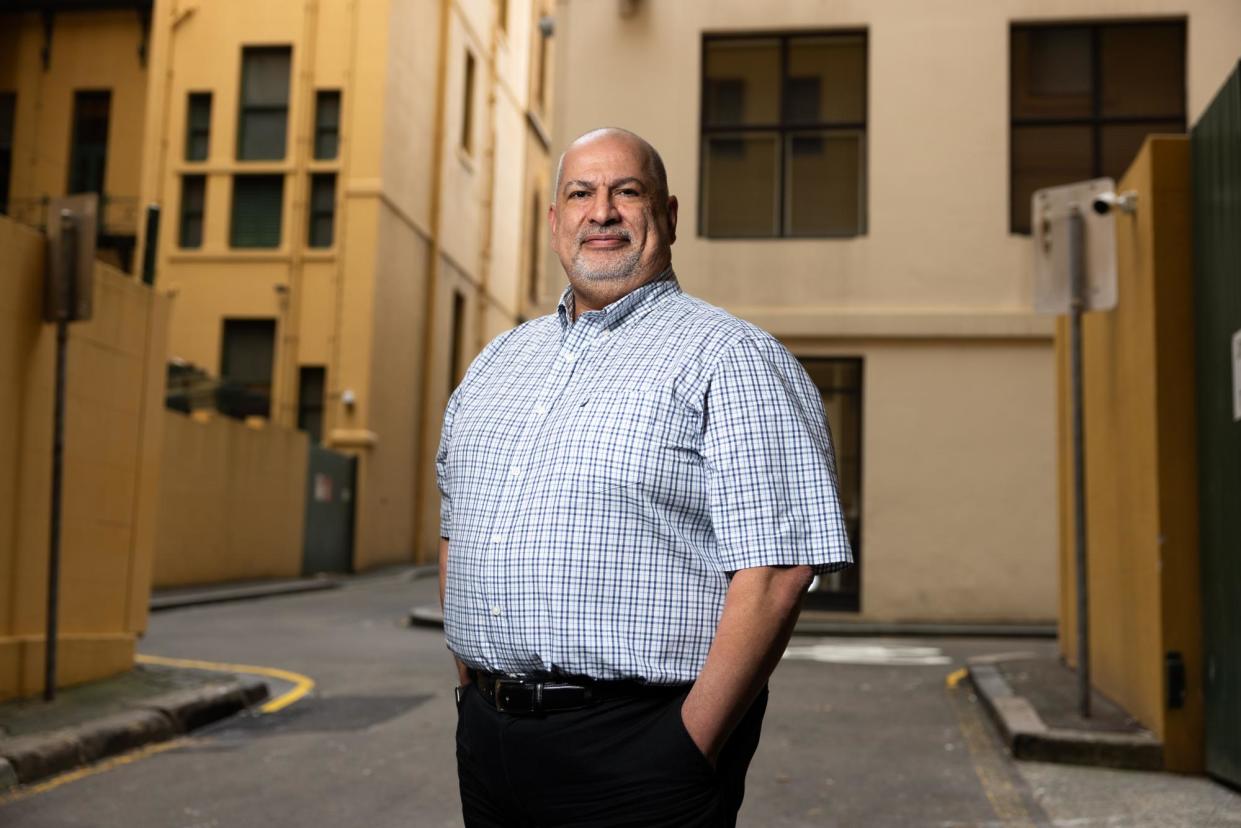Labor ‘clearly afraid’ of backlash after taking Islamic community for granted, Muslim Votes Matter says

One of the new organisations seeking to mobilise Australian Muslims at the next federal election has hit back at “almost farcical” attempts to discredit the movement, insisting the Labor government is “clearly afraid”.
Ghaith Krayem, a spokesperson for Muslim Votes Matter, said despite criticism from major party politicians and media, the movement was an “inclusive initiative that hopes to uplift representation for minority groups across the country”.
“There are hundreds of volunteers who have put their hands up nationally to join our movement and not just from Muslim backgrounds, but from minority groups who have been marginalised by our government for years,” Krayem told Guardian Australia.
Krayem, a former head of the Islamic Council of Victoria and former CEO of the Australian Federation of Islamic Councils, said Muslim Votes Matter was “independently funded” but he did not disclose details of donations received to date.
It was separate from another group, The Muslim Vote, but they would “collaborate on common objectives, just as we would with any other group that has common interests with us”, he said.
Both Muslim Votes Matter and The Muslim Vote have been at the centre of fierce political debate after the Labor senator Fatima Payman crossed the floor to support the immediate recognition of Palestine as a state. She quit the party two weeks ago.
In the wake of those developments, the prime minister, Anthony Albanese, said Australia should not “go down the road of faith-based political parties, because what that will do is undermine social cohesion”.
The opposition leader, Peter Dutton, specifically warned against “a minority government with the Greens, the green teals and Muslim independents”.
Meanwhile, the Australian Financial Review argued in an editorial that “the rise of political Islam as in the UK would undermine the secular liberal democratic foundations of modern Australia”.
‘Fearmongering’
Responding to these comments, Krayem said Muslim Votes Matter was not a political party, was not aligned to any party, and would not be running candidates in the next federal election.
Its overarching objective was “to provide political advocacy on matters significant to our community and to increase voting literacy and participation”.
Related: Rebel with a cause: inside the moment Fatima Payman quit the Labor party
“Recent attempts made by both the media and MPs including the prime minister to fearmonger the idea of ‘political Islam’ is almost farcical and demonstrates that we are in fact a force to be reckoned with,” Krayem said.
“Muslims in Australia, like all Australians, have not just the right but also the obligation to engage and participate in the political processes of this country. To paint this as a negative is disappointing and goes against this country’s democratic values.”
Krayem described Muslim Votes Matter as “a national, independent and grassroots organisation developed in response to community sentiment around the lack of representation of both Muslim and minority groups in Australia”.
He said the Muslim community was “among the fastest-growing minority groups in Australia” but remained “grossly underrepresented at all levels of government”.
“Our community has had to endure violent, aggressive Islamophobia for decades and racial vilification laws have done little to protect Australian Muslims,” Krayem said.
“The ongoing genocide in Gaza and broader issue of Palestine is one critical issue driving our campaign, but ours is an inclusive initiative that hopes to uplift representation for minority groups across the country.”
He said the Labor party had “taken Muslim and minority votes for granted” for too long, but “that changes now”.
Since March, Muslim Votes Matter has published scorecards assessing MPs in various electorates against a range of criteria, including whether they have called for an “immediate and sustained ceasefire” and “condemned war crimes committed by Israel in Gaza by name” and “called for a lift to the 16-year illegal blockade on Gaza”.
Controversially, the group only assesses MPs against statements they have made in parliament, not speeches or media interviews done outside the chamber.
Krayem revealed that “a number of politicians have recently requested updates to their scorecards after they appeared to make seemingly more supportive comments on Gaza publicly”.
But he vowed to retain the original scorecards, arguing comments made in parliament were “the best gauge of their position”.
“Our objective remains clear, and dogged tactics by overzealous leaders and media do nothing to dissuade us.”
Related: Anthony Albanese appeals to western Sydney amid Muslim voting campaigns on Gaza war
The other new group, The Muslim Vote, was also contacted for comment. It has previously said it is not a political party but has flagged plans to back independent candidates in seats such as Tony Burke’s western Sydney electorate of Watson.
Burke, the employment minister, told the ABC’s Insiders program on Sunday he never took his seat for granted, but acknowledged “genuine sentiment in the community of deep frustration that they want our position with respect to Gaza to be stronger”.
The Australian government has called for an “immediate humanitarian ceasefire” in Gaza since December.
Australia also voted at the UN in May to enhance the status of the Palestinian diplomatic mission, but has said it is open to recognising Palestine only as part of a peace process.
It has refrained from labelling the bombardment of Gaza as genocide and has acknowledged Israel’s right to self-defence after the Hamas attacks, while urging it to comply with international law.
Despite Keir Starmer’s Labour party winning a thumping majority in the UK election on 4 July, it also lost four seats to independent candidates standing on an explicitly pro-Palestinian platform. The UK has a “first past the post” system rather than Australia’s preferential voting system.


